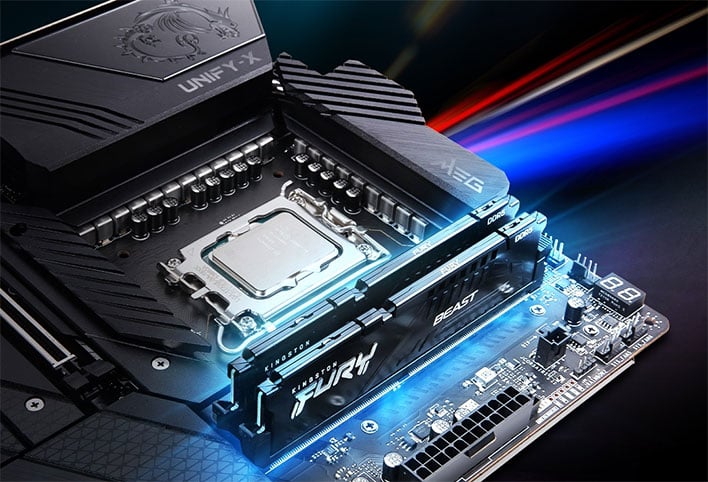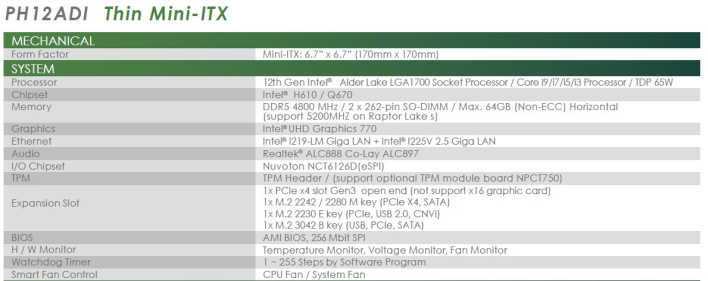AMD Ryzen 7000 Could Have A Memory Speed Edge Over Intel Raptor Lake 13th Gen

On Socket AM4, it took a few generations for AMD to get its memory controller performance all maxed-out. The original Ryzen struggled with DDR4 memory faster than about 2667 MT/s, and it wasn't really until Zen 2 (the Ryzen 3000 series) that we started to see wide support for memory faster than 3000 MT/s.
That's all in the past now, of course. Modern Ryzen machines usually have no problems taking a pair of modules up to DDR4-3800 or higher—although going beyond that usually requires reducing the Infinity Fabric clock, which makes the nominal increase in memory bandwidth much less useful.
The Ryzen 7000 series processors surely won't be spec'd for such a high memory clock, but early rumors seem to put those processors down for 5600 MT/s, at least for the enthusiast desktop parts. We can expect that for its 13th-generation Raptor Lake processors, Intel will increase the memory speed beyond Alder Lake's first-DDR5-generation minimum, but by how much?
We may have a clue as to how much in the form of the spec sheet for an industrial motherboard. MiTAC, also known as MCT, listed a very curious entry in the specifications table for its PH12ADI Mini-ITX motherboard. This board can be found with an H610 or Q670 chipset, and normally it takes DDR5-4800 memory in SO-DIMM format.
Image: @momomo_us
Well, until this morning when @momomo_us pointed it out, the motherboard also listed support for 5200 MT/s on Raptor Lake-S chips. The mention has since been removed, so thanks to @momomo_us for the screenshot. No doubt Intel was quite annoyed at MCT for revealing this little bit of trivia about its upcoming CPUs.
Of course, that doesn't mean that Raptor Lake will necessarily be spec'd for 5200 MT/s. It certainly doesn't mean that the future CPUs will be limited to that speed; intrepid overclockers have already taken an Alder Lake CPU to 10,000 MT/s. No doubt the 13th-gen CPUs will push ever farther past that boundary.



